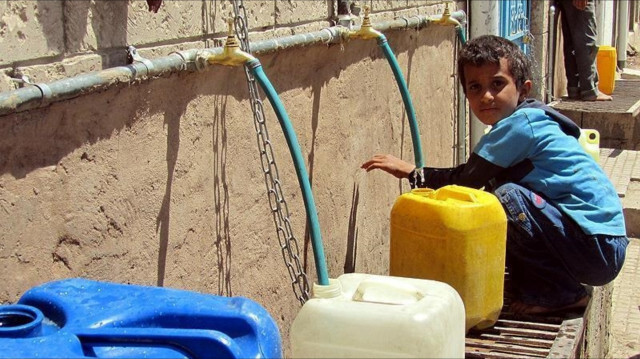
Water scarcity has emerged as a dire issue in al-Ankour, Iraq, as the once thriving Habbaniyah Lake, spanning 140 square kilometres, is currently grappling with a pressing water crisis. The drought-stricken land, accentuated by the harsh desert heat and riddled with toxic waste, has spurred a humanitarian and environmental crisis in the region. With a population of 13,000, many of these locals yearn for an escape but are financially restrained, reported by Al Jazeera.
This alarming situation originated from a decision taken nine months ago to reroute the Euphrates River, the primary source of sustenance for the lake, from Syria to Fallujah. This diversion resulted in a significant reduction in water availability for the local population. In an urgent effort to tackle the issue, the local government mobilized freshwater tankers. However, these supplies have now run dry. A recent attempt to dig a new well also ended in failure, forcing the villagers to rely on bottled water for their daily needs.
The Green Iraq Observatory, a local environmental watchdog, estimated that the water redirection has resulted in severe shortages, adversely affecting the residents of al-Ankour and al-Majar. The economic impact is also tangible, with former fishermen, like Firas Mohammed, burdened with the weekly cost of bottled water and sporadic income from manual labour in the city. “Despite the horror and cruelty of war, it’s still better than living in drought and water scarcity,” expresses Mohammed.
In response to the crisis, activists such as Nooraldeen Adil, Amin Hamid, Samim Salam, and Zaid Mayouf are advocating for improved government solutions and providing water to affected families through voluntary donations. Despite their efforts, the lack of a robust response from local and national bodies remains frustrating.
The crisis unfolding around Habbaniyah Lake is indicative of Iraq's larger environmental challenges. The Ministry of Water Resources alerts that Iraq teeters on the edge of its most severe water shortage in 100 years, affecting seven million of its inhabitants. United Nations data suggest that 90% of Iraq's rivers are contaminated, projecting that by 2035, Iraq's water requirements will be outpaced by demand, fulfilling only 15% of the nation's needs. The problem is exacerbated by geopolitical dynamics, with experts calling for a strong negotiation strategy to secure Iraq's access to water from neighboring countries.
The Iraqi situation provides a stark portrayal of the profound interplay between natural resource scarcity, climate change, geopolitical tensions, and human survival. With inadequate response from local and national institutions, the crisis could escalate, calling for immediate and concerted action.
By Khan Muhammad An Nazmus Saqib













